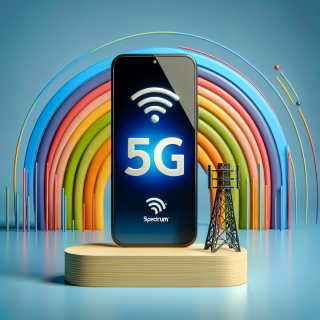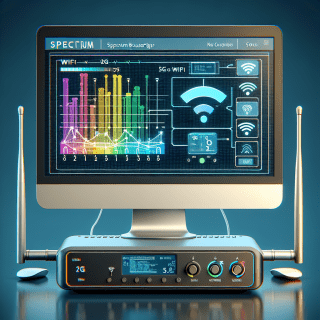5G Home Internet Showdown: Verizon vs. Spectrum

But how do the powerhouses of the internet square off when it comes to 5G home internet: Verizon vs. Spectrum. Consumers are now faced with the dilemma of which provider to choose as each carrier is boasting about their 5G services and sounding better than the other. A major telecom in the world known as Verizon has done a monsterous effort bring the 5G Ultra Wideband to every of this nation and hoping to get that around all houses future behalf. In contrast, cable internet kingpin Spectrum is using its expansive cable network to roll out 5G connectivity to keep and win back customers. These two titans have locked horns with one another and are offering up a mesh of aspirations and price points that consumers must sift through to decided which is the best fit for their needs. Unsealed:Comparing 5G home internet services and pondering the future of fast home connectivity
Overview of 5G Home Internet
As the latest advancement in home connectivity, 5G home internet brings speeds that are exponentially faster, latency that is lower, and capacity that is larger than what was previously available with wireless technology. Unlike the wire-heavy broadband that 5G is expected to massively disrupt, 5G is an air-based tech and can be used to serve internet directly to homes using a 5G modem. Beyond making install a piece of cake, this also brings high-speed internet access to regions where broadband has been either unavailable, or prohibitively expensive.
According to a press release, 5G home internet is designed to provide enough power to handle multiple devices and support high-bandwidth activities like streaming 4K video, online gaming, and smart home devices all at once and without any performance setbacks. Verizon, Spectrum, and other major telecommunications companies are competing to gain a foothold in this burgeoning market. For Spectrum, the emphasis is on pallet 5G services with its existing cable internet and TV, while Verizon is trumpeting the top-level global speed and reliability of its mmWave 5G Ultra Wideband offering. It is also a testament to how 5G is potentially changing home internet and to make high speed connectivity be as ubiquitous as wired electricity is today.
Definition and explanation of 5G technology
One element of 5G technology that differs significantly from 4G is the fifth-generation mobile network technology it represents, promising faster data speeds, subdued latency, and disciplined connectivity. Five gigabit: Integrating millimeter waves in 5G is all about higher frequency bands, and that means making it possible to carry out greater data transfer. The benefit of all of this is download speeds up to 100x faster than 4G networks hyperfast downloads of ultra-HD, relatively low-latency streaming, and the potential to create entirely new applications with high-performance internet, like VR or autonomous vehicles.
More importantly, 5G networks use technology such as Massive MIMO (Multiple Input Multiple Output) – which uses multiple antennas to increase signal strength and capacity – and beamforming technology to better focus signals to intended devices. This will be particularly important in high-density areas where network congestion is the norm. The low latency of 5G — often under a millisecond — enables real-time applications, which in turn is expected to underpin the smart cities, industrial automation and similar future use cases.
Benefits of 5G over traditional broadband
One element of 5G technology that differs significantly from 4G is the fifth-generation mobile network technology it represents, promising faster data speeds, subdued latency, and disciplined connectivity. Five gigabit: Integrating millimeter waves in 5G is all about higher frequency bands, and that means making it possible to carry out greater data transfer. The benefit of all of this is download speeds up to 100x faster than 4G networks hyperfast downloads of ultra-HD, relatively low-latency streaming, and the potential to create entirely new applications with high-performance internet, like VR or autonomous vehicles.
More importantly, 5G networks use technology such as Massive MIMO (Multiple Input Multiple Output) – which uses multiple antennas to increase signal strength and capacity – and beamforming technology to better focus signals to intended devices. This will be particularly important in high-density areas where network congestion is the norm. The low latency of 5G — often under a millisecond — enables real-time applications, which in turn is expected to underpin the smart cities, industrial automation and similar future use cases.
Current market landscape and adoption rate
In the case of 5G home internet services, the current battleground features a turbo-charging competition involving traditional cable providers (Spectrum) along with the more robotic telecom mammoths like Verizon. The rise of 5G technology is also luring consumers to contemplate cutting the broadband cord with its promise of speedier delivery and low-latency with cheaper bandwidth. Verizon continues to aggressively grow its 5G home internet service, essentially using its vast 5G network to make the fastest gains possible in the growing 5G segment of the home internet market. Unfortunately, it does not share how many customers are adding its 5G Home Internet service, but the adoption rate is picking up, especially in areas where it has a competitive footprint in urban and suburban regions.
Spectrum, a key traditional broadband provider, is under pressure to innovate and match the higher speeds and flexibility that 5G promises. To this end, Spectrum is supplementing its traditional broadband services, and seeing how it can mix in 5G with the solution. Byuer noted, however, that Spectrum’s take rate in a head-to-head 5G brawl with one of its pure 5G Spectrum counterparts is… considerably lower, with people attracted to the magic of 5G’s cutting edge glamour being offered more heavily by Verizon. But this is also interesting because it shows how the home internet sector is changing and that we’re entering a period of fierce competition.
Verizon 5G Home Internet
In the case of 5G home internet services, the current battleground features a turbo-charging competition involving traditional cable providers (Spectrum) along with the more robotic telecom mammoths like Verizon. The rise of 5G technology is also luring consumers to contemplate cutting the broadband cord with its promise of speedier delivery and low-latency with cheaper bandwidth. Verizon continues to aggressively grow its 5G home internet service, essentially using its vast 5G network to make the fastest gains possible in the growing 5G segment of the home internet market. Unfortunately, it does not share how many customers are adding its 5G Home Internet service, but the adoption rate is picking up, especially in areas where it has a competitive footprint in urban and suburban regions.
Spectrum, a key traditional broadband provider, is under pressure to innovate and match the higher speeds and flexibility that 5G promises. To this end, Spectrum is supplementing its traditional broadband services, and seeing how it can mix in 5G with the solution. Byuer noted, however, that Spectrum’s take rate in a head-to-head 5G brawl with one of its pure 5G Spectrum counterparts is… considerably lower, with people attracted to the magic of 5G’s cutting edge glamour being offered more heavily by Verizon. But this is also interesting because it shows how the home internet sector is changing and that we’re entering a period of fierce competition.
Coverage areas and availability
Coverage Area & Availability: When it comes to 5G home internet, coverage areas and availability will be key in a Verizon Vs. Spectrum comparison. Want more information on Verizon’s 5G Home Internet?(Image credit: Verizon)In essence, Verizon’s 5G Home Internet is utilizing its more advanced 5G Ultra Wideband network, which is for the most part mostly found in urban and dense-suburb areas, first. While Verizon has been ramping up its 5G coverage in a bid to finally deliver high-speed internet to more homes, the availability is still far less than its robust 4G LTE network. By comparison, Spectrum relies on its sprawling cable infrastructure, offering high-speed internet to more places than 5G, even some remote rural and suburban locations that 5G has yet to reach. Although the service on Spectrum may not reach the same speeds as 5G Ultra Wideband, this service is available to a wider group of consumers. Even if Verizon offers cutting-edge speeds in some cities, there is more Spectrum services available for a broader audience for a reliable connection.
Download and upload speeds
Coverage Area & Availability: When it comes to 5G home internet, coverage areas and availability will be key in a Verizon Vs. Spectrum comparison. Want more information on Verizon’s 5G Home Internet?(Image credit: Verizon)In essence, Verizon’s 5G Home Internet is utilizing its more advanced 5G Ultra Wideband network, which is for the most part mostly found in urban and dense-suburb areas, first. While Verizon has been ramping up its 5G coverage in a bid to finally deliver high-speed internet to more homes, the availability is still far less than its robust 4G LTE network. By comparison, Spectrum relies on its sprawling cable infrastructure, offering high-speed internet to more places than 5G, even some remote rural and suburban locations that 5G has yet to reach. Although the service on Spectrum may not reach the same speeds as 5G Ultra Wideband, this service is available to a wider group of consumers. Even if Verizon offers cutting-edge speeds in some cities, there is more Spectrum services available for a broader audience for a reliable connection.
Pricing plans and promotions
There are two major related dimensions of pricing plans and potential promotions that separate the 5G Home Internet services from Verizon and Spectrum. If you are already a Verizon Wireless customer, it doesn’t get any cheaper than this — with prices starting at around $50 per month, and scaling up based on performance and added goodies. Promotions will usually give you free trials (or at least a reduced rate for the trial period) and in some cases, free streaming service subscriptions.
Spectrum, meanwhile, tends to price its 5G Home Internet plans a bit higher — generally around $60 per month. This does not exactly tie into Verizon promotional strategy, but Spectrum does often send bundled discounts when you bundle internet service with TV and phone. In addition to free installation as part of their promotions, no data caps, and competitive bundled pricing aimed at maximizing household value.
The primary advantage Verizon would have is in targeting consumers perhaps more interested in standalone 5G internet plans, while Spectrum could definitely appeal to customers who wanting discounts on bundled services, and those looking to buy just about everything from one company.
Customer service and reliability
These differences in customer service and reliability, when comparing Verizon to Spectrum in 5G home internet will have a significant bearing on user experience.
One of the best things Verizon offers is superior customer support as they are available 24/7 in three key ways by phone, chat, and social media. Their DDoS protection has shown to be reliable and rarely goes down, and their network is robust, with minimal downtime and stable high-speed performance. Reviews tend to include praise for Verizon’s customer service, often noting short wait times and knowledgeable support personnel working to further Verizon’s cause of total customer satisfaction.
Spectrum – Spectrum also offers comprehensive customer service, however, reviews tend to be hit or miss. Service levels become inconsistent and lead to longer wait times, disgrunting users. On the other hand, while it may not have the cutting edge performance of Verizon’s 5G network, Spectrum’s widespread coaxial network still offers many homes a connection they can depend on.
In the end, Verizon’s top-tier customer service and reliability deliver a strong case for 5G home internet, though Spectrum is still a sound option for those who place more value on a tried and true cable line.
Spectrum 5G Home Internet
Spectrum is historically a cable and fiber-based Internet service, but now it has entered the 5G space with Spectrum 5G Home Internet. Utilizing the low and mid-band 5G spectrum, the Spectrum offering will consist of fast and reliable Internet service for the home. While Verizon is concentrating on ultra-fast, but short-range mmWave 5G, Spectrum’s approach should create a much broader coverage map, even if individual speeds aren’t as high. This approach even lets Spectrum provide robust enough connectivity to stream, play video games, or conduct video calls in everyday home use.
Spectrum: 5G Home Internet Simplicity and Client-Centered Offerings This means that there are no contracts, data caps, or hidden charges of any sort, making it ideal for users who like their billing and service terms laid out in a no-frills way. Equipment is frequently included and set-up is usually pretty straightforward, saving customer time. In other words, Spectrum 5G Home Internet wants to marry the strengths of its established services with the possibilities of 5G to make home Internet available to more consumers.
Coverage areas and availability
Spectrum is historically a cable and fiber-based Internet service, but now it has entered the 5G space with Spectrum 5G Home Internet. Utilizing the low and mid-band 5G spectrum, the Spectrum offering will consist of fast and reliable Internet service for the home. While Verizon is concentrating on ultra-fast, but short-range mmWave 5G, Spectrum’s approach should create a much broader coverage map, even if individual speeds aren’t as high. This approach even lets Spectrum provide robust enough connectivity to stream, play video games, or conduct video calls in everyday home use.
Spectrum: 5G Home Internet Simplicity and Client-Centered Offerings This means that there are no contracts, data caps, or hidden charges of any sort, making it ideal for users who like their billing and service terms laid out in a no-frills way. Equipment is frequently included and set-up is usually pretty straightforward, saving customer time. In other words, Spectrum 5G Home Internet wants to marry the strengths of its established services with the possibilities of 5G to make home Internet available to more consumers.
Download and upload speeds
Pros and cons of Verizon vs. Spectrum 5G home internet services Download and upload speeds are key features when you are comparing 5G home internet between Verizon and Spectrum. The carrier’s 5G network infrastructure ensures that users get the higher-end of download speeds, typically ranging from 300 Mbps all the way up to over 1 Gbps under optimal conditions. In such cases, such a new trend dilutes content storage speed, straightens the buffer of media, and optimizes data-intensive operations. Verizon also does quite well in upload speeds-the speed needed for activities like video conferencing and uploading large files can often reach speeds between 50 Mbps to 200 Mbps depending on the capacity of the network and the location of the user.
Spectrum delivers very fast speeds for a cable internet provider without quite reaching the top-tier speeds of Verizon 5G, Spectrum download speeds range from usually 200–400 Mbps, with uploads are anemic and restricted to 10–35 Mbps. This gap can be notable for users in need of high-speed two-way data transmission. In the end, although capable of providing good internet from both providers, Verizon’s 5G is more likely to get better performance than this and previous customers in the home and offices of consumers.
Pricing plans and promotions
Key differences in the pricing plans and promotions for 5G home internet between Verizon and Spectrum The monthly price is usually $50 or more but that will depend on the location and current deals. This often includes incentives such as free streaming subscriptions or special rates when bundled with their mobile services. Verizon promotions could also include hardware deals such as free 5G routers.
However, Spectrum 5G home internet plans are quite a bit more expensive, with prices that start around the same level but can differ significantly across regions and new-customer promotions. Spectrum often has promotional offers for new customers, with the first year often being significantly discounted. It may also include bonuses like unlimited data or contract buyouts for subscribers from other companies. Both AT&T and Spectrum specialize in massive-slated promotions designed to cost-capture customer acquisitions. Spectrum’s strategy tends to focus on promoting and bundling with its legacy cable offerings.
Customer service and reliability
Key differences in the pricing plans and promotions for 5G home internet between Verizon and Spectrum The monthly price is usually $50 or more but that will depend on the location and current deals. This often includes incentives such as free streaming subscriptions or special rates when bundled with their mobile services. Verizon promotions could also include hardware deals such as free 5G routers.
However, Spectrum 5G home internet plans are quite a bit more expensive, with prices that start around the same level but can differ significantly across regions and new-customer promotions. Spectrum often has promotional offers for new customers, with the first year often being significantly discounted. It may also include bonuses like unlimited data or contract buyouts for subscribers from other companies. Both AT&T and Spectrum specialize in massive-slated promotions designed to cost-capture customer acquisitions. Spectrum’s strategy tends to focus on promoting and bundling with its legacy cable offerings.
Side-by-Side Comparison
Key differences in the pricing plans and promotions for 5G home internet between Verizon and Spectrum The monthly price is usually $50 or more but that will depend on the location and current deals. This often includes incentives such as free streaming subscriptions or special rates when bundled with their mobile services. Verizon promotions could also include hardware deals such as free 5G routers.
However, Spectrum 5G home internet plans are quite a bit more expensive, with prices that start around the same level but can differ significantly across regions and new-customer promotions. Spectrum often has promotional offers for new customers, with the first year often being significantly discounted. It may also include bonuses like unlimited data or contract buyouts for subscribers from other companies. Both AT&T and Spectrum specialize in massive-slated promotions designed to cost-capture customer acquisitions. Spectrum’s strategy tends to focus on promoting and bundling with its legacy cable offerings.
Speed and performance comparison
Many factors are at play when comparing the speed and performance of Verizon 5G Home Internet to Spectrum home internet plans. Using the most advanced wireless technology available, Verizon 5G Home Internet offers the fastest available speeds on the market – more than what is technically defined as broadband. It can support users downloading at speeds between 300 Mbps and 1 Gbps at low latency, perfect for 4K streaming, online gaming, and video conferencing.
Spectrum, on the other hand, does provide a reliable cable internet connection that boasts speed tiers between hundreds of Mbps and 1 Gbps, depending on the service plan. Spectrum’s speeds are on par with what Verizon 5G offers, but how it actually performs depends on the quality of the network infrastructure and traffic in your neck of the woods.
In sum, Verizon 5G Home Internet can provide competitive, and even best-in-class speeds and performance depending on where 5G infrastructure exists. That said, many homes will still find Spectrum an inevitably strong option, simply due to the good ol’ reliability of cable networking.
Value for money assessment
Price, speed, data limits, and other perks should all be taken in account when determining value for money in this 5G home internet showdown between Verizon and Spectrum. Overall, pricing is competitive with Verizon’s 5G home internet plans and may be bundled with mobile plans for additional savings. Their speeds can be extremely fast with rapid download times that beat regular broadband, and there are plenty of costs to offset any effects on power users and smart home enthusiasts.
Alternatively, Spectrum’s 5G home internet packages tend to have no hard data caps – something that can be quite important to users who put back significant amounts of data via streaming, gaming, or telecommuting. Although their top speeds may not always compare to Verizon, Spectrum’s service reliability and up-front pricing (sans hidden fees) are likely a good fit for a larger scope of consumers who demand consistent and hassle-free Internet usage.
In the end, each of these figures will appeal to different user types – Verizon for those in need of speed, and Spectrum for those who burn data faster and prefer the clarity of Spectrum data use allowances.
Pros and cons of each provider
Price, speed, data limits, and other perks should all be taken in account when determining value for money in this 5G home internet showdown between Verizon and Spectrum. Overall, pricing is competitive with Verizon’s 5G home internet plans and may be bundled with mobile plans for additional savings. Their speeds can be extremely fast with rapid download times that beat regular broadband, and there are plenty of costs to offset any effects on power users and smart home enthusiasts.
Alternatively, Spectrum’s 5G home internet packages tend to have no hard data caps – something that can be quite important to users who put back significant amounts of data via streaming, gaming, or telecommuting. Although their top speeds may not always compare to Verizon, Spectrum’s service reliability and up-front pricing (sans hidden fees) are likely a good fit for a larger scope of consumers who demand consistent and hassle-free Internet usage.
In the end, each of these figures will appeal to different user types – Verizon for those in need of speed, and Spectrum for those who burn data faster and prefer the clarity of Spectrum data use allowances.
Customer satisfaction and reviews
It feedback was generally a mixed bag when it comes to customer satisfaction when it when it comes to the reviews of the 5G home internet from both Verizon and Spectrum. For its part, Verizon’s 5G Home Internet typically gets strong reviews for fast speeds and general reliability, especially in cities with solid 5G infrastructure. The easy installation and ability to save money by signing up for each service together has also been praised by many customers as well. Less dense or rural areas may not always maintain connectivity, and customer support can be hard to reach.
Because of its extensive coverage and reliable performance in suburban and rural areas (though it mostly sells cable internet with the benefit of 5G in some places), Spectrum is often well-rated. Most customers rate Spectrum highly for reliability, although not as quick as Verizon’s 5G performance under perfect conditions. The most common issues raised tend to be complaints about customer service – long wait times, challenges with billing issues, etc. In the end, depending on location, service availability, and how each user prioritizes what would suit them most.
So what have we concluded?
It feedback was generally a mixed bag when it comes to customer satisfaction when it when it comes to the reviews of the 5G home internet from both Verizon and Spectrum. For its part, Verizon’s 5G Home Internet typically gets strong reviews for fast speeds and general reliability, especially in cities with solid 5G infrastructure. The easy installation and ability to save money by signing up for each service together has also been praised by many customers as well. Less dense or rural areas may not always maintain connectivity, and customer support can be hard to reach.
Because of its extensive coverage and reliable performance in suburban and rural areas (though it mostly sells cable internet with the benefit of 5G in some places), Spectrum is often well-rated. Most customers rate Spectrum highly for reliability, although not as quick as Verizon’s 5G performance under perfect conditions. The most common issues raised tend to be complaints about customer service – long wait times, challenges with billing issues, etc. In the end, depending on location, service availability, and how each user prioritizes what would suit them most.
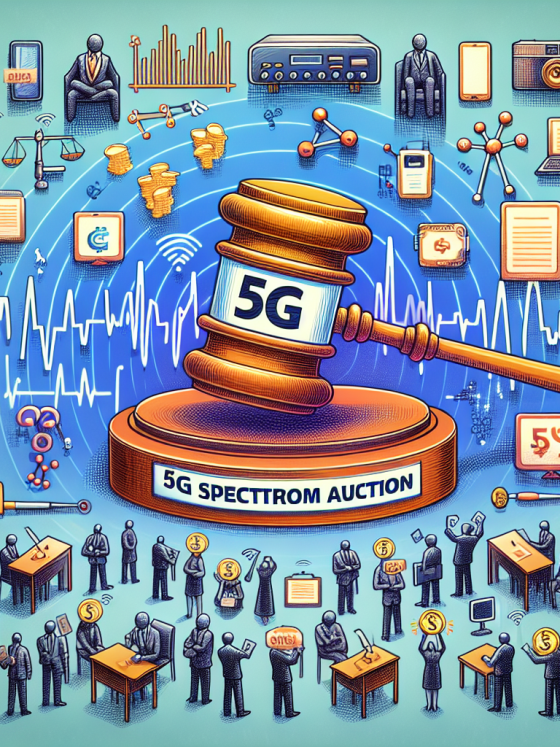
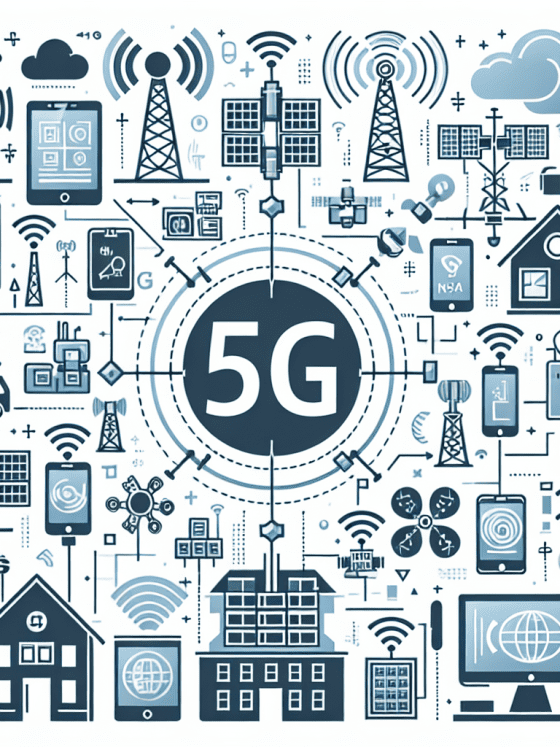
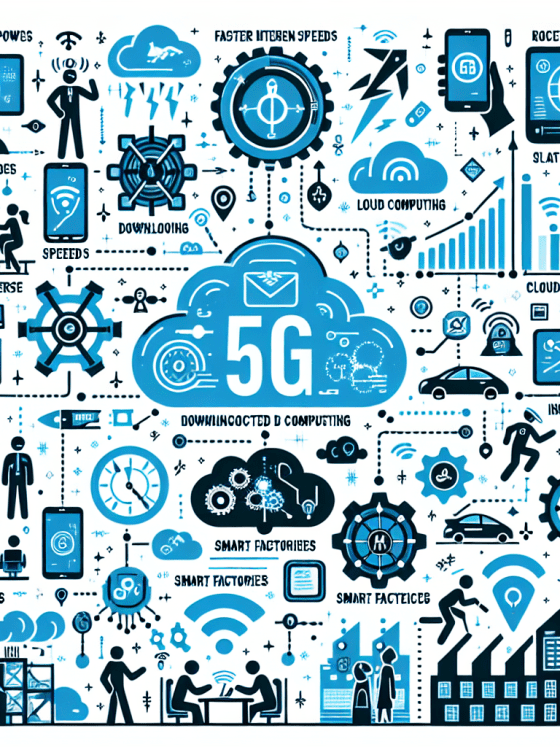
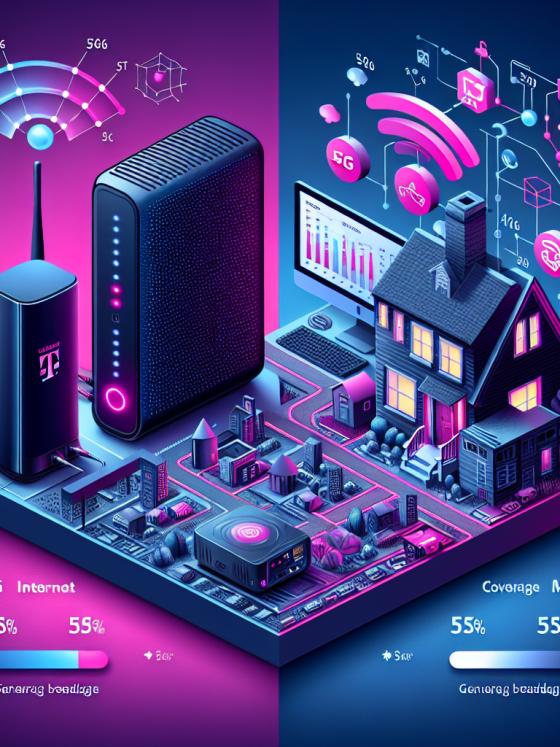
![Introduction to 5G Technology [PPT]](https://5ginnovations.top/wp-content/uploads/2024/07/introduction-to-5g-technology-ppt-560x747.jpg)
![Complete Guide to 5G Technology [PDF]](https://5ginnovations.top/wp-content/uploads/2024/07/complete-guide-to-5g-technology-pdf-560x747.jpg)
